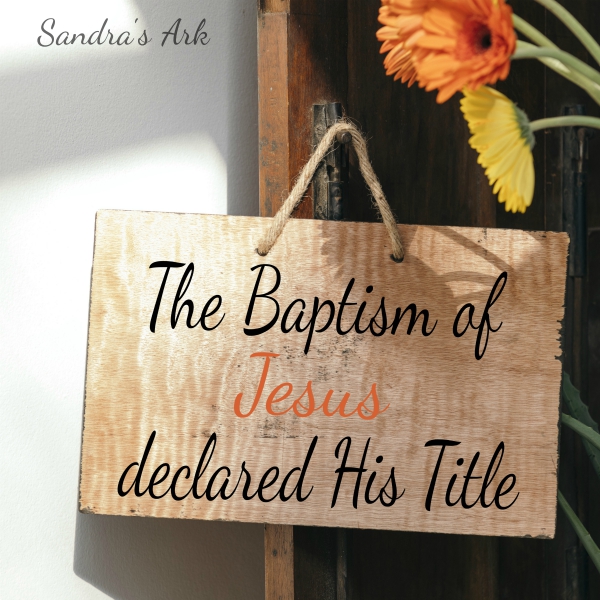What do we read about in the second & third chapters of Luke's Gospel?
What do we learn from Luke?
What is the main focus?
Is it important to know the words from this chapter?
I am doing this in response to an Advent Reading challenge where we read 1 chapter of the Gospel of Luke per day from 1st to 24th December which will allow the whole book to be read.
Let's look at the
Second Chapter of Luke.
The Census v. 1-5:
The first notable thing here is that we are clearly told under who's reign Jesus was born
Caesar Augustus
Caesar being the title (hence many times we read of Caesar in the Bible but we must not assume they are all the same one) and his name being Augustus.
Then we are clearly told that a man called Quirinius was the Governor in Syria which helps historians even more to determine the historical time for this important birth.
This clearly agrees with the facts we saw in the overview about Luke being methodical and chronological in his writings.
Joseph and Mary have to travel from Nazareth to Bethlehem for a census to be conducted and this is a large census which in verse 1 is described as being worldwide - obviously the area of the world ruled by the Romans.
I felt the fact that Mary having to go with Joseph, even though she was not yet married to him, was an indication of the significance of engagement which in our day and age does not hold as much importance any more.
Jesus' Birth in Bethlehem v. 6-7:
This was one of the most significant parts of this chapter for me.
Only 2 verses to tell about the birth of Jesus.
Yet within them we know
1. it happened in Bethlehem
2. it was during the census time
3. this baby was her first-born son
4. the baby was wrapped in cloths
5. the baby was placed in a manger for a bed
6. the family were not in the proper accommodation we would normally use.
No other superfluous information but the basic facts.
The Birth is Announced to the Shepherds v. 8-20:
The first people to hear about the birth are the shepherds and they are treated in a special manner being told by an angel.
Here we have one of the well-known statements of Christmas in verses 10-12
10 And the angel said unto them, Fear not: for, behold, I bring you good tidings of great joy, which shall be to all people.
11 For unto you is born this day in the city of David a Saviour, which is Christ the Lord.
12 And this shall be a sign unto you; Ye shall find the babe wrapped in swaddling clothes, lying in a manger.
10 And the angel said unto them, Fear not: for, behold, I bring you good tidings of great joy, which shall be to all people.
11 For unto you is born this day in the city of David a Saviour, which is Christ the Lord.
12 And this shall be a sign unto you; Ye shall find the babe wrapped in swaddling clothes, lying in a manger.
They were given the special message that needs to be not only thought about each Christmas but also throughout the year as it is Gospel there in verse 10
The gospel is "good news of great joy" and it is meant to be for all people.
Notice in verse 11 we are told the baby is "Christ the Lord" - the earliest acknowledgement of His title which in the Greek means "chosen one" or "anointed one" and the word for this in Hebrew gives us the title of Messiah.
However not only was one angel sent but then a multitude of angels come to sing praises unto God.
and in verse 14 the multitude of angels say "on earth be peace among men" another of the most used phrases of Christmas.
The shepherds are instructed not to be afraid in verse 10 and when the angels leave they do show they are not afraid by going straight away to look for the baby.
they find the baby
verse 16
16 And they came with haste, and found Mary, and Joseph, and the babe lying in a manger.
just as they had been instructed in verse 12 as can be seen above and this is the link up with verse 7 where even though the event of the birth was so briefly described it did include the mention of the manger.16 And they came with haste, and found Mary, and Joseph, and the babe lying in a manger.
The shepherds then were the first to present the Good News of Jesus to the people in verses 17-18
I love the mother's heart in verse 19
But Mary kept all these things, and pondered them in her heart.
Do we ponder the words like Mary did?
Jesus Presented at the Temple v. 21-40:
Luke now tells us about the presentation of Jesus at the temple after He had been named Jesus as the angel Gabriel had said and He had been circumcised as the custom was.
verses 23 & 24 give us the reason for the trip to the temple in Jerusalem - to offer the sacrifice for the first-born being Holy unto God.
There were two other events while in the temple that were important enough for Luke to recount them here.
The meeting with Simeon
Simeon was righteous & devout and the Holy Spirit was upon him - verse 25
The Holy Spirit had told him he would not die before seeing the Christ - verse 26
He took the baby in his arms, blessed God and gave us the great words of
verse 30
For mine eyes have seen thy salvation
The meeting with Anna
Anna was a prophetess - verse 36
Anna was a widow - verse 37
Anna was 84 years old - verse 37
Anna spent all her days in the temple, serving, praying & fasting - verse 37
Anna gave thanks to God as soon as she saw the baby - verse 38
Anna witnessed to all those seeking for the Messiah - verse 38
Lots of info on these two people from the factual accounts of Luke but also so much to continue to ponder over and follow their examples.
Not a lot is ever told about Jesus in his younger days but do we really need much more than this verse?
verse 40
And the child grew, and waxed strong in spirit, filled with wisdom: and the grace of God was upon him.
Feast of the Passover at Jersusalem v. 41-52:
They went to Jerusalem to the feast every year according to verse 41But when Jesus was 12 there was a difference in His visit; he was no longer the young child constantly in his parent's eyesight and company but now was off to do what he felt called to do.
We are not told of any year after this being significant but I believe that is because the rest of them were all like this one in that Jesus was as verse 49 tells us
about His Father's business
Even though Jesus knew what He had to do with His life it did not mean that He treated His parents differently and considered Himself to be wiser than they, He was still obedient and respectful of them as we see in verses 51-52
51 And he went down with them, and came to Nazareth, and was subject unto them: but his mother kept all these sayings in her heart.52 And Jesus increased in wisdom and stature, and in favour with God and man.
Again notice those sayings of Jesus were kept in His mother's heart.
I really feel that in Luke's account of chapter 2 we have
the reason why Jesus was born
and
the "great joy for all" being made more important
and
the "great joy for all" being made more important
than the details of the actual birth.
Already there has been so much said that we should all be pondering these things in our hearts just as Mary did.
Let's look at the
Third Chapter of Luke.
John The Baptist Preaches v. 1 - 18:
1. The precise time in history - 15th year of Tiberius Caesar (note a different Caesar from before)
2. Governor of Judea was Pontius Pilate
3. Herod was Tetrarch of Galilee - a Tetrarch was the governor of one of four divisions pf a country or province in the Roman Empire
4. Herod's brother Philip was Tetrarch of another region
5. Lysanias was Tetrarch of another region
6. Annas and Caiaphas were High Priests.
This was a distinct time when John heard from God and he went into the district around the River Jordan preaching and baptising for repentance and forgiveness of sin. verses 2-3
Luke also in verses 4-6 makes sure we know this was in fulfilment of a prophecy by Isaiah.
John was straight with the people and clearly showed them what they needed to do verses 7-14
This made some people wonder if John was the Christ - the Messiah everyone had been waiting for.
However He portrayed the difference between him and Jesus in
verses 15-17
15 And as the people were in expectation, and all men mused in their hearts of John, whether he were the Christ, or not;16 John answered, saying unto them all, I indeed baptize you with water; but one mightier than I cometh, the latchet of whose shoes I am not worthy to unloose: he shall baptize you with the Holy Ghost and with fire:17 Whose fan is in his hand, and he will thoroughly purge his floor, and will gather the wheat into his garner; but the chaff he will burn with fire unquenchable.
John is imprisoned v. 19 - 20:
For the personality of Luke, being a methodical and chronological person, as we have seen previously, this took me by surprise to see that he then relates about Herod putting John in prison because of the pricking of Herodias' conscience. She had been married to Philip who was Herod's brother but was now married to Herod.Chronologically he should have put in the next section before this one because it obviously happened before he was imprisoned.
Jesus is Baptized v. 21 - 22:
We are given only two verses here with regards to the baptism of Jesus.
Within those verses Luke makes sure to highlight the Holy Spirit at work here but does not include the preamble between John and Jesus that other Gospels do.
But then surely he has brought our attention to exactly who Jesus is in verse 22 - God's beloved SonWithin those verses Luke makes sure to highlight the Holy Spirit at work here but does not include the preamble between John and Jesus that other Gospels do.
I have thought a few times previously about the difference in the relaying of the words at this time between the four Gospel writers.
Matthew 3 v 17
Mark 1 v 11
Luke 3 v 22
and a voice came from heaven, which said, Thou art my beloved Son; in thee I am well pleased.
John 1 v 34
And I saw, and bare record that this is the Son of God.
Which of the four accounts do we hear most often?
Matthew's
Yet this one is the only one that uses the words that infer God spoke to the people about Jesus whereas Mark and Luke both use the words that infer God was talking to Jesus directly.
As you can see above I have made bible verse graphics of both the Matthew and the Mark verses and it was when I made the second of these that the difference struck me. I feel that all my life I have only really heard the Matthew version yet none else wrote it in the same way and in fact 2 of them wrote it differently.
Genealogy of Jesus v. 23 - 38:
We go back from Jesus to Adam.
Just WOW!
Makes me want to do a timeline between them but that would be so time-consuming and I'm sure others have already done this.
So I did a little search and found that Answers in Genesis have a Bible-Timeline
We visited the Creation Museum and The Ark 2 years ago so now I'm thinking why did I not think to buy their timeline then because it is not available in their British store.
If I ever do find time to try out making a timeline I'll share it somehow on the blog.
In my blog post for the First Day in the Book of Acts I made the following statement
We have a lot to learn from Luke.
then I also stated
And we have a lot to be thankful to Luke for.
followed by
Makes you think even before you start reading the story.
When I did the Overview and ch. 1 of Luke I then I said
Makes you think as soon as you start reading the story.
Now I guess I am going to be saying
Makes me think the whole way through the book of Luke.
If you would like to read more of the posts in this series please click HERE for a list of them all.




















